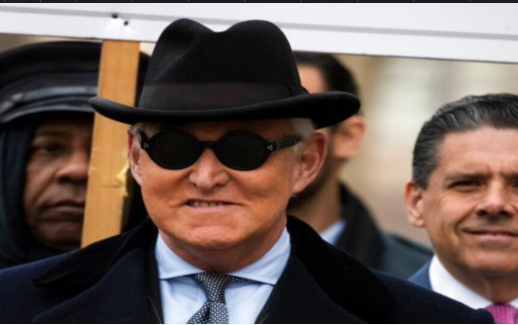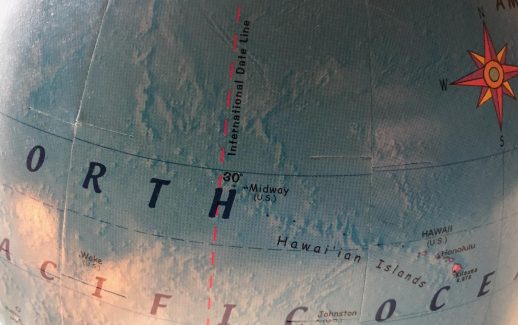China’s and Russia’s “multipolar world” brand has obscured China’s global unipolar objectives and Russia’s subjection to China. As Putin gambles Russia’s future on death dealing expansion during an economic contraction, China’s power over Putin hardens. Multipolar-speak helps hide that from Russians.
Susan Haynes née Turner warned of this deception risk in her 2009 paper “Russia, China and a Multipolar World Order: The Danger in the Undefined.” Her then prescient warning was that the Chinese and Russian autocracies had branded “nearly all of their joint declarations, statements, and treaties dating from the mid-1990s to the present” (2009) with the multi-polar world label holding “dangerous potential for similar rhetoric to disguise dissimilar methods and objectives.”
The multi-polar rhetoric was also used within the Shanghai Five project of 1996-97 turned Shanghai Cooperation Organization (SCO) in Summer 2001. The multipolar world vision diverted attention from China’s superior rights and leverages gained against Russia and lesser SCO members. The multipolar brand also drew attention away from Chinese imperial ambitions, mercantilism, and outward militarism belying China’s stated trust in shared multipolarity.
Initiative Moves: Using Yeltsin to Form the Shanghai Five
In 1996, an ailing Russian President Boris Yeltsin joined in formation of the “Shanghai Five” as groundwork for the Shanghai Cooperation Organization of 2001. In April and November 1997, the charismatic Chinese President Jiang Zemin guided Mr. Yeltsin in signing mutual border declarations between Russia and China, announcing a “new multipolar world”.
Mr. Yeltsin’s identity as Russian democratic reformer and Jiang’s reputation as a liberal economic reformer made the Shanghai Five appear as a regional, diverse group of nations with a mixed reformative trajectory. Yet by that time, Putin’s people, including Valentin Yumashev who engineered his installation, were behind Yeltsin’s slow, painful escalator ride out of the Kremlin. In that context, Russia’s joining the Shanghai Five was not a liberalizing move. Likewise, Jiang Zemin held to communist autocracy amid liberal smiles and reforms.
Putin’s Proxification of Russia to China via Shanghai Cooperation Organization (SCO)
On June 15, 2001, Russian President Vladimir Putin signed Russia onto the Shanghai Cooperation Organization (SCO), committing Russia to a power relationship slanted toward China.
Slanted how? The SCO charter contained one priority condition for SCO members to impliedly benefit from China’s economic largesse, including Russia: all would have to recognize Taiwan as part of China. Yet China did not have to recognize or support any other member’s territorial claims of sovereignty over their neighbors.
Beijing’s aim with the SCO was to co-opt a weakened Russia and its former satellites to become resource stations in Beijing’s bold trade plans, to support Beijing’s territorial claims, and to help establish a path to Chinese global leadership. The trade plan some called “New Silk Road” yet became the Belt and Road Initiative (BRI) by 2013.
As the Jamestown Foundation put it on June 22, 2001, “Russian President Vladimir Putin seeks, with very limited means, to reverse a ten-year strategic retreat from Central Asia. To facilitate even a limited comeback he needs China’s cooperation. Through the SCO, Putin is in essence inviting China to enter what used to be Russia’s Central Asian preserve.”
And more recently China has also pushed and bargained its way into the Russian Arctic, possibly even using gray warfare tactics (anchor dragging?) to sabotage the Balticconnector pipeline and telecom cables between Finland and Estonia to earn trust in its Northern role as Moscow’s partner. This, in addition to being a multi-resourced great power Russia needs as Putin has exchanged Russia’s free trade with Ukraine, Europe, the U.K., and the U.S. for wasteful intra-slavic aggression and predictable sanctions.
Beijing’s Proxy Wars Cost Russians and Others Dearly to Divert Western Focus on Taiwan
The loaded SCO scales reflect Putin’s need for an economic patron to help him appear a tribal provider to his people, yet gradually shaped Russia into Beijing’s highest tier geopolitical vassal, proxy, and provocateur. This put North Korea and Iran into the second tier, with China the Alpha dictatorship.
Viewed in this light, Vladimir Putin’s war of aggression on Ukraine supported by Iranian weapons could be seen as a co-proxy operation benefiting Beijing by dividing U.S. and free nation energies relative to Taiwan’s defense and on free trade and navigation on the South China Sea.
Yet the depopulation cost to Russia is severe and sacrificial as Xi hides his Stalinesque role in encouraging the depopulation of Russia and Ukraine by supporting Putin’s war rationales under the multipolar label. If the war for Ukraine drags on and Putin starts new wars, this would likely create future dependence on Chinese manpower as Chinese males outnumber females at home and unemployment rises inside China.
A recent precursor policy to sending young Chinese men to help Russia fill the brain, brawn, and life drain of Putin’s intra-Slavic wars may well be Xi Jinping’s latest ruralization incentives to young, graduating, unemployed Chinese to leave cities and settle into China’s rural life with their new energy and ideas, as young Xi’s family had done at Mao’s behest. This serves a dictator’s need to isolate and disperse symptoms of dictatorial error. Errors include pressuring foreign businesses in China and growing unemployment related to reversals of economic liberalization with military saber rattling against global customers’ governments and militaries.
Should Putin’s war in Ukraine drag on for years and Russians and Ukrainians bury more of their young and middle aged men and increasing numbers of women and children, who will repopulate their lands and homes? Who will migrate into Russia and Ukraine to fill the gaps? Those who left as refugees? Expats? Bordering great powers?
If Russian rule collapses, who will insure Russia’s nuclear arms do not fall into the wrong hands? Chinese strategists have no doubt considered the question. If Chinese forces were invited into Russia to help secure and possibly acquire Russian nuclear weapons after a collapse, how multipolar would the global power balance be then? At present, Russian polls show that Putin’s war combined with blame-shifting propaganda about the West has had a unifying effect across Russia.
Yet as war goes on and the death notices go out to Russian homes, the propaganda will ring hollow.
Moreover, Putin’s use of Caucasus region conscripts as cannon fodder in Ukraine would seem to lower the numbers of men who might later oppose Russian forces retaking former Soviet Republics and oppose a likely Chinese military presence that comes with Beijing’s Belt and Road Initiative to Eurasia. If Putin’s wars expand against other SCO member nations China will see further depopulation of Russian and Eurasian military aged men, easing China’s path to expansion.
The Hamas aggression against Israel on October 7, 2023 and pile-on attacks by Shiite militias are third tier proxy attacks supplied by second tier proxy and SCO applicant Iran. Like Russia’s aggression on Ukraine, Iran’s sponsorship of militant terrorist attacks on Israel serves Beijing’s objective to divide and dilute free nations’ energies away from China’s gray warfare and potential invasion of Taiwan. China’s support of Russia and Iran tends to depopulate and wear down militaries that China’s military may later have to fight as it pushes the BRI through Eurasia and the Middle East.
China’s leverage and influence of Middle East powers could help it fuel and fund the BRI into Africa. And indirectly supporting a massive conflagration between Israel and the Arab world and related agitation between the West and Islamic peoples would seem to help clear the way. China can be patient.
And so the question becomes for Russians and the rest of the world, when does the Chinese imperial project Putin invited into the Kremlin become too expensive? When does the Slavic family cut-off their gambling uncle and invite younger leaders to stop the bleeding and preserve their birthright with clear-eyed leadership?
Putin’s SCO Error Compels Russian Intelligence Services and Military to Self-Destruction
Contrary to the SCO founders’ claims that the grouping was not directed at any other state or collection of states, the diplomatic whispers, non-public speeches, and later, President Putin’s aggressive international Valdai Discussion Club speeches portrayed the United States as the unipolar power to oppose.
For example, Putin, in his 2014 Valdai address accused the U.S. of imposing “unilateral diktat” on the world, blamed it for upsetting the post-Cold War order, and for the rise of terrorism despite his post-9-11 claim to support easing NATO expansion if NATO joined Russia in anti-terrorism, fight them in Afghanistan. Then, in Judo-flipping fashion, Putin later blamed the U.S. for terrorism’s rise and asserted: “Statements that Russia is trying to reinstate some sort of empire, that it is encroaching on the sovereignty of its neighbors, are groundless.” These verbal contradictions, deceptions, and false denials continue into the present as Putin depopulates Russia and Ukraine, and Xi Jinping considers the vacuum.
Further Research Needed
To explain how a man like Putin could survive the mean streets of 1990’s St. Petersburg, Judo is not enough. One might research more deeply Putin’s foreign opportunities as chairman of the External Relations Committee of the St. Petersburg Mayor’s office in the early 1990s and as First Deputy Mayor in 1995 for some answers. In that role, did Putin handle Chinese among other foreign applications to do business in St. Petersburg?
Relatedly, U.K.’s Construction News published a September 29, 1994 blurb announcing: “RUSSIA: ST PETERSBURG – CHINESE WHISPERS: A China Street has been designated in St Petersburg to woo Chinese investors. The city is twinned with Shanghai.”
If it is true that St. Petersburg became a sister city of Shanghai, Putin may have hosted Chinese delegations to St. Petersburg in his External Relations role, and traveled with Russian delegations to Shanghai with Mayor Sobchak. Given Putin’s KGB reserve status, might Putin have been approached by Chinese intelligence offering him Chinese sponsorship in the early 1990’s?
Further research is needed, however, actions today speak as loudly as proof of past ties. Yet for Russians who did not sign up for subversion of the Russian Federation’s interests by China, the history matters.
Reality: Not the Russian New Century But Chinese
If President Yeltsin initiated the diplomacy that degraded Russian independence in exchange for Beijing’s economic lifeline on November 11, 1997 (some six months before Vladimir Putin was made head of the FSB), President Vladimir Putin helped formalize and finalize it on June 15, 2001, the summer before the September 11 attacks by al Qaeda against the United States.
Solutions Thinking
What will make this pattern of proxy destabilization too expensive for Russia and China to continue against free nations?
China, Russia, and each of their proxies have vulnerable pressure points like every other nation state, entity, and economy. No security regime is perfect.
As observed above, the hierarchical nature of the Alpha, second, third, and fourth tier proxy autocracies and terror groups puts the needs of the Alpha above that of the vassals and proxies. As lower rung needs are unmet, the influence power of the Alpha wanes. Freedom is then revealed not to have been the threat the autocrats’ club repeatedly claimed that it was. Rather, the extremity of top down, central rule has revealed itself time and again as the unsustainable threat to those stuck under it.
There are ways to accelerate that realization in the people laboring under dictatorships. The combinations of actions that could get that done are worth public and non-public efforts among free nations.

